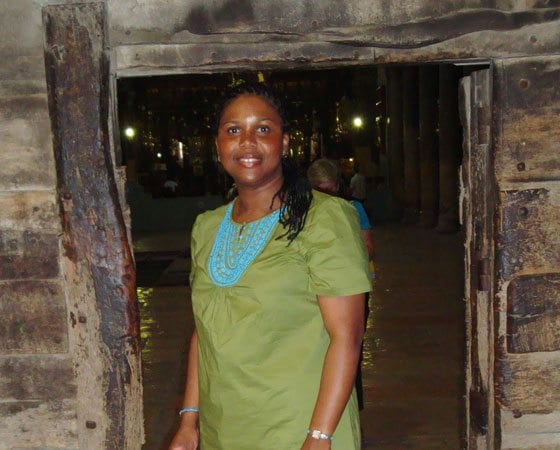

Author: Angela McConneyMilton resident Angela McConney recently traveled to Jerusalem and encountered a community of “joyful worshipers.” McConney is the co-chair of the Commission on Ministry of the Episcopal Diocese of Massachusetts.
The West Bank is a land crisscrossed by barbed-wire checkpoints, fortified Israeli settlements and a winding, 20-foot-high militarized “separation” wall that Israelis say is designed to keep them safe from Palestinian terrorists.
In a land that’s home to one of the most bitterly contested ethnic and religious conflicts in the world, Milton resident Angela McConney sought fellowship with the people she calls the original Christians.
What she found was a people who were warm, open and welcoming to outsiders.
Traveling on a 10-day tour with a delegation from the Episcopal Diocese of Massachusetts, McConney found a community very different from the one depicted in news accounts of Palestine.
“I found that atmosphere to be very positive,” she said. “They work hard to build community. You felt like you were in the presence of real Christians.”
McConney was born in Barbados and raised in Dorchester. She graduated from Boston Technical High School and Dartmouth College, where she learned Arabic and spent a semester at the American University in Cairo. She is a former president of the Massachusetts Black Lawyers Association and serves as a general counsel to the state’s Civil Service Commission.
Her volunteer work as a co-chair of the Commission on Ministry of the Episcopal Diocese of Massachusetts provided an entrée for her trip to the Holy Land.
Starting in Jerusalem, the city that Christians, Jews and Muslims all view as a holy center, the delegation visited mostly Christian holy sites that are frequented by the throngs of Christian pilgrims who flock to Israel and the Palestinian territories it has occupied for the last 42 years.
“The Palestinians were happy to welcome us,” McConney said. “The [Episcopal] Bishop of Jerusalem, Suheil Dawani, wanted us to know that Jerusalem is our home. He wants Christians from all over the world to see Jerusalem as their home.”
When the state of Israel was carved out of Palestine in 1948, many Muslims and Christians were forcibly expelled or fled the 80 percent of the territory claimed by the Jews. Israel does not recognize the right of the refugees from the 1948 war or their descendants to return to their homes.
Many of those who fled ended up in refugee camps in the so-called West Bank of Palestine and in the Gaza Strip. In the 1967 war, the Israeli military seized the West Bank from Syria and Gaza from Egypt, beginning a 42-year military occupation of those territories and building Israeli settlements.
While many in the Arab world blame the United States for funding Israel’s military (Israel receives more than $4 billion in aid from the U.S.), McConney said the Palestinians she met bear no grudge against the American people.
“They don’t hate Americans,” McConney said. “The feeling I got is that they don’t think we understand how they’re living. They’re hopeful of [President Barack] Obama. They think he’s going to do something.”
McConney said the economic hardships faced by the Palestinians were considerable. While many had advanced degrees, there are few jobs available in the West Bank.
Nevertheless, Palestinian merchants seemed eager to welcome McConney and her fellow travelers from the Greater Boston area. She said they sometimes refused to accept payment for goods the group purchased.
“I was surprised at the warmth of the people,” she said. “They’re happy to see anyone from outside on their side of the wall.”
In the churches of the West Bank, McConney joined Palestinian Episcopalians singing hymns — the Palestinians in Arabic, the Americans in English.
“They’re joyful worshipers,” McConney said. “They sing very loudly. They enjoy their services. You feel like you’re in the presence of real Christians.”







